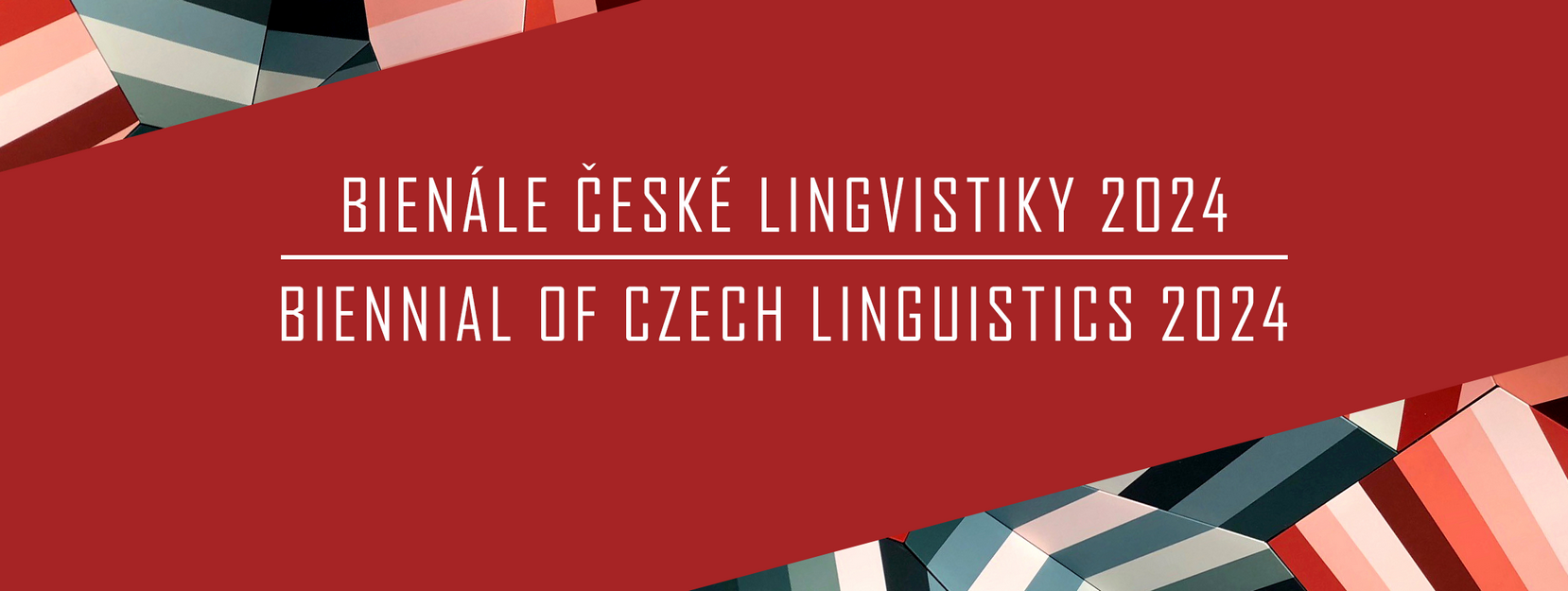Program
Plenary lectures
- Olivier Bonami (Université Paris Cité, Laboratoire de linguistique formelle, CNRS)
Czech morphology as a testing ground for morphological theory - Pavel Kosek (Masaryk University)
From philology through computational linguistics to phonological typology and back: development of syllabic consonants in Czech - Barbara Mertins (TU Dortmund University)
Multilingualism from a psycholinguistics point of view
Main program (September 18–20, 2024)
The main program features 3 plenary lectures, 21 thematic workshops, and a poster session.
- Main program in pdf (last update: 16 September)
- Book of abstracts in pdf (last update: 15 September)
- For some workshops the presentations/slides are available. See Workshops.
Satellite events (September 17, 2024)
The satellite events will be held in Czech. If you intend to take part in the satellite events, please register.
Diskusní panel o postojích českých lingvistek a lingvistů k jazykové regulaci
organizers: Václav Cvrček, Hana Dufková, Ondřej Dufek
17 Sept, 12:00–14:00, nám. Jana Palacha 1/2, místnost P200
Rádi bychom pozvali celou odbornou veřejnost k debatě o postojích lingvistek a lingvistů k regulaci češtiny. Vzhledem k tomu, že lingvistická komunita je jedním z podstatných tvůrců jazykové politiky u nás, a se zřetelem k tomu, že od vydání posledních Pravidel českého pravopisu uplynulo 30 let, považujeme za správné diskusně reflektovat současný stav jazykové regulace i možné výhledy do budoucna. Odrazovým můstkem pro debatu bude prezentace výsledků průzkumu postojů k tomuto tématu, který byl proveden z kraje roku 2024 a kterého se zúčastnilo cca 246 lingvistek a lingvistů v ČR i ze zahraničí. Na ni naváže panelová diskuse a po ní obecná rozprava, do níž se může zapojit kdokoli.
Searching the InterCorp parallel corpus using the Universal Dependencies annotation (workshop)
organizers: Olga Nádvorníková and Alexandr Rosen
17 Sept, 14:30–16:30, nám. Jana Palacha 1/2, P200
The aim of this workshop is to introduce the multilingual syntactic and morphological annotation according to the standard of Universal Dependencies (www.universaldependencies.org) together with its application to the new release of the InterCorp parallel corpus. Participants will have the opportunity to practically explore new options of corpus search and statistical analysis offered by the annotation and to discuss the possibilities of using this approach in linguistic research and teaching.
Multilingualism in the Czech context (popularization panel)
organizers: Kateřina Chládková and Olga Nádvorníková
17 Sept, 17:00–19:00, nám. Jana Palacha 1/2, P200
During the panel discussion, prominent Czech experts from the fields of psycholinguistics, sociolinguistics, multilingualism, and the teaching of Czech as a second language will come together to acquaint the public with various aspects of multilingualism, primarily in the context of the Czech Republic. The aim of the panel will be to present multilingualism as a concept, its impact on Czech society and the linguistic situation in the country, and to discuss its importance and challenges. This discussion will provide valuable insights into this current and relevant issue for both experts and the general public.
